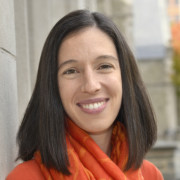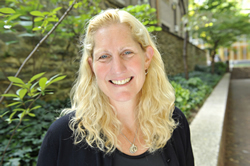Johanna K. P. Greeson, Allison E. Thompson, Michelle Evans-Chase & Samira Ali
Child Welfare Professionals’ Attitudes and Beliefs About Child Welfare-Based Natural Mentoring for Older Youth in Foster Care
Child Welfare Professionals’ Attitudes and Beliefs About Child Welfare-Based Natural Mentoring for Older Youth in Foster Care
|
ABSTRACT
This qualitative study is the first to explore child welfare professionals’ attitudes and beliefs about implementing natural mentoring as a promising way to smooth the road to independence for older foster youth. The term “natural mentor” refers to a non-parental, caring adult whom a youth identifies in his/her existing social network (e.g., teachers, coaches, adult relatives). Five focus groups were conducted with 20 child welfare professionals from a Department of Human Services (DHS) located in a large urban city in the Northeastern United States. This study used the exploration,preparation, implementation, and sustainment (EPIS) framework to explicate the organizational challenges and opportunities related to the implementation of a child welfare-based natural mentoring intervention. The following significant themes emerged related to natural mentoring for older foster youth emancipating from care: a) the strengths and gaps of DHS service, b) the importance of youth perspective, c) the appropriate vetting of supportive adults as natural mentors, d) the benefits of natural mentoring, and e) the relevance of DHS’s climate and culture for implementation. Future studies are needed to build upon these initial findings to better understand the organizational contexts in which natural mentoring can be implemented for older foster youth preparing for emancipation. KEYWORDS. Natural mentoring, child welfare practice, older foster youth, aging out, organizational culture and climate
|
Biographies:
Dr. Johanna K.P. Greeson is passionate about reforming the child welfare system, using research to build better futures for youth who age out of foster care, and realizing the power of connections to caring adults for all vulnerable youth. Her research agenda is resiliency-focused and based in the strengths and virtues that enable foster youth to not only survive, but thrive. Dr. Greeson’s published work includes scholarly articles on youth aging out of foster care, independent living, natural mentoring, evidence-based practices for youth in foster care, residential group care, intensive in-home therapy, low-income home-ownership, and child/adolescent traumatic stress. Dr. Greeson is currently piloting an innovative natural mentoring intervention for older youth in foster care in partnership with Philadelphia Department of Human Services. This project was funded by the Children's Bureau. Allison Thompson received her Master of Social Services from Bryn Mawr College. Allison attended Cairn University in Langhorne, PA as an undergraduate, earning a Bachelor’s degree in Social Work. Prior to joining SP2’s Ph.D. program in Social Welfare, Allison worked as a research writer in the Philadelphia Department of Human Services. Her research interests include the transition to adulthood among youth aging out of foster care, natural mentoring for older youth in foster care, relational permanence, positive youth development theory, and resiliency, risk, and protective factors. Dr. Michelle Evans-Chase is a lecturer and PhD candidate at the School of Social Policy & Practice where the focus of her work has been on the design and evaluation of programming for youth in the juvenile justice system informed by neuropsychosocial theories of adolescence. Ms. Chase received her master’s degree in social psychology from San Francisco State and spent 9 years teaching a variety of undergraduate psychology and sociology courses prior to returning to school. Ms. Chase’s research experience includes 9 years as project coordinator of field projects in correctional and community settings. Ms. Chase recently designed and is currently guiding the implementation of two risk-reduction programs for adolescents: a Mindfulness Meditation intervention for incarcerated youth, which she is evaluating using a randomized control design for her dissertation; and an ocean-based mentoring program for low-income youth in American Samoa. Dr. Samira Ali received her PhD in social welfare from the School of Social Policy and Practice at the University of Pennsylvania. Her scholarship focuses on community-based participatory research (CBPR), primary and secondary HIV prevention, and the impact of structural conditions on youth and women’s health behaviors in global and local settings. Samira’s dissertation research utilized a CBPR framework and mixed-methods design to explore sex worker mothers’ relationship and sexual health communication with their adolescent children in Kolkata, India. Particularly, with the sex worker community in Kolkata, she designed, implemented, and tested the feasibility of culturally tailored, family-based sexual health communication intervention. She is also a coordinator on a team of academic and community partners in New York City for a series of community-based studies examining the impact of housing as a structural intervention on risk behaviors and mental health of women living with HIV. She has experience working with children and families that have been impacted by HIV/AIDS in New York City. Prior to entering the doctoral program, she worked at Court Appointed Special Advocates (CASA) as an Advocate Supervisor, advocating for safe and permanent homes for children involved with the foster care system. For the past two years, she has been working with Housing Works in New York City on a pilot research project that is testing the impact of housing as a structural intervention with women who have been released from jail or prison and who are HIV positive. | ||||||



